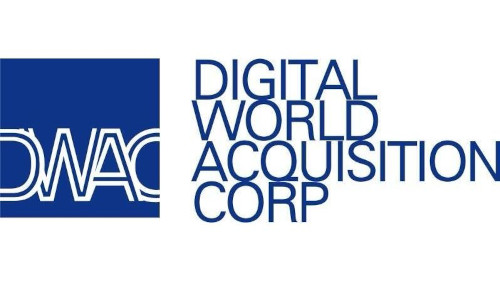Digital World Acquisition in an amended S-4 revealed a dispute over compensation with its founder and former CEO Patrick Orlando, with the SPAC warning the conflict could postpone or even derail the long-delayed merger with Trump Media & Technology Group (TMTG). Meanwhile, the ex-president’s media company is facing new disputes of its own.
Orlando was fired in March last year due to an SEC investigation of the SPAC’s pre-IPO activities. He remains a member of the board and majority owner of the SPAC’s founder shares. According to the new S-4, Orlando has refused to issue further working capital loans to Digital World, while demanding additional stock compensation. He currently owns 14.8% of the outstanding shares and has a controlling interest in the founder shares, according to the filing.
Digital World later reached a settlement agreement with the SEC, which found that the SPAC prior to its IPO engaged in merger discussions with Trump’s company — a violation of securities law. Digital World agreed to pay an $18 million penalty if the deal with TMTG ever closes.
The SPAC said it may yet need additional working capital to sustain operations, despite additional outside financing announced less than a week ago.
Under Risk Factors, the amended filing states:
“In recent weeks, Mr. Orlando, Digital World’s former Chairman and Chief Executive Officer, a current member of our Board and a controlling affiliate of our Sponsor, has expressed a desire for additional compensation in the form of common stock (above his interest in the Founder Shares), which request was denied by Digital World. As a result, the professional relationship between Mr. Orlando and Digital World has strained and there is no assurance that Mr. Orlando as a current member of our Board or as a controlling affiliate of the Sponsor will be cooperative in connection with the consummation of the Business Combination. Due to Digital World’s decision not to provide Mr. Orlando with any additional compensation, we believe a significant risk exists that Mr. Orlando may be uncooperative in approving any amendments to the Merger Agreement that may become necessary and/or in voting the Founder Shares in support of the Business Combination. In addition, Mr. Orlando may use his control over the Sponsor and the majority of the Founder Shares as leverage to raise further demands in exchange for performance of his contractual obligation. In the event Mr. Orlando proves uncooperative in either respect, the resultant delay could introduce material risk to the Business Combination, including with respect to TMTG, given its unilateral termination right. Even if TMTG does not terminate the Merger Agreement, due to historical delays, any potential prolonged or continued delay in consummating the Business Combination could result in a material increase in pre-Business Combination expenses, which could have a material adverse effect on the Combined Entity’s liquidity and capital resources. Mr. Orlando’s future refusal may impact our ability to effectively proceed with the planned merger activities or may limit our ability to consummate a Business Combination, which could lead to our liquidation.”
As of the current proxy statement and prospectus, the SPAC said it expects the conversion ratio to be 1.34, which excludes any issuance of Digital World Alternative Warrants in connection with the settlement of the (now-cancelled) PIPE investment and the $50 million in Digital World Convertible Notes announced last week. Terms of the convertible notes allowed Digital World to draw down $10 million immediately for working capital needs.
However, when calculating the definitive conversion ratio, the board can choose to exclude any post-IPO financings, the proceeds of which were used to pay expenses associated with the SEC investigation. As a result, the board might prefer a lower conversion ratio at deal closing.
If Digital World is required to continue to raise proceeds in the form of equity-linked securities, the conversion ratio may increase. That would also increase the number of shares issuable to Class B common stock holders upon conversion into common stock of TMTG following a merger.
If the board opts for a lower conversion ratio, that “could potentially lead to prolonged disputes with some holders of Class B common stock,” Digital World said in the filing. “For example, following recent interactions with Mr. Orlando, it is understood that Mr. Orlando’s position is that the conversion ratio should be 1.69. However, Digital World has not been able to confirm the basis for such a different conversion ratio. Should Mr. Orlando pursue these claims related to the adjustment and prevail, applying a 1.69 conversion ratio would result in the issuance of 4,959,375 shares of New Digital common stock compared to 2,443,750 shares of Class A common stock.”
Public stockholders not redeeming their shares prior to the closing are expected to bear the burden of this additional dilution, the SPAC noted.
On the other end of the deal, TMTG is involved in a contractural dispute with an outside investor that also threatens the business combination.
Digital World said it received letters from attorneys for United Atlantic Ventures, the investment group that approached Trump about creating the media company, claiming that United Atlantic Ventures has the right to appoint two directors to TMTG and its successors and to approve or disapprove the creation of additional TMTG shares or share classes and anti-dilution protection for future issuances. United Atlantic also claims it is owed $1 million from TMTG and has threatened legal action to collect the fee as well as possibly enjoining the business combination. United Atlantic made similar threats to TMTG.
The parties to the business combination face a September deadline for completing the deal. This would also mark the three-year anniversary of Digital World’s IPO and almost three years since the deal was publicly announced. Read more.









